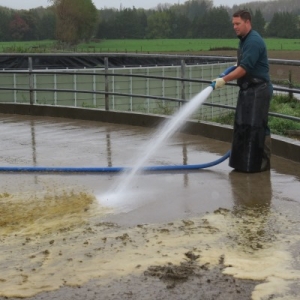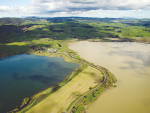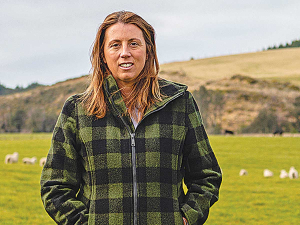Using limited water resources wisely helps protect the health of waterways and ecosystems, as well as helping ensure the region's economic health.
In the Waikato, surface water has been fully allocated or is approaching full allocation in many catchments. So the region needs to be using its water resources with caution, as evapo-transpiration from pasture frequently exceeds rainfall and limits soil water supply.
Of late, there has been growing awareness of these limits on Waikato's water resources and that there are multiple demands on this water resource. Resource consents are required for all water takes for irrigation purposes and advice on the likely availability of water, consent process and costs involved should be sought from the regional council at the earliest opportunity.
Such wise water use is an important element in the concept of sustainable agriculture.
Water use efficiency or WUE is a key performance indicator for sustainable agriculture and at a farm scale is an indicator of productivity and profitability.
The physiological or agronomic definition of WUE is the "ratio of the amount of biomass produced to the actual amount of water evaporated and transpired" or evapo-transpiration by that particular crop or pasture (transpiration is the release of water through plants to the atmosphere).
From an economic or farm management perspective, WUE is often defined as the ratio of a marketable unit of yield per unit of water used. For example, the number of kilograms of milk solids or wheat grain per millimeter of water used.
There are a number of principles farmers can follow to help ensure they have sustainable irrigation. System design, maintenance and operation are critical factors in determining WUE for any soil and crop combination.
The key irrigation design requirements that each particular farm needs for sustainable irrigation should be established, as well as the irrigation and farm management practices required to maximise production and minimise environmental impacts. Farmers should also remember that using any feed grown effectively is, in effect, a core part of efficient irrigation.
WUE can be improved by using irrigation systems with high inherent irrigation application efficiencies and by maintaining and operating the system well.
Modern irrigation systems are capable of much higher efficiencies than were possible in the past so farmers with older systems could consider what gains they could make with an upgrade.
Efficiency can be boosted by applying water more evenly or by differential irrigation over areas of different soil type – if applications are more uneven than the system design specifications, modifications to the system may be needed to fix the problem.
Farmers should avoid over application of irrigation, ensuring that water is not being applied faster than the soil can absorb. This will avoid ponding, run-off, and excessive drainage, and ensure optimum soil moisture levels across the paddock. This can only be achieved with good information, so every irrigation system should include a soil moisture measurement system.
Once farmers know how much their irrigation system is applying, they can schedule irrigation to avoid under watering and losing pasture production or to prevent over watering (losing water through drainage and run-off).
There are commercial irrigation scheduling services available. If managed correctly these systems can significantly reduce over irrigation and equally importantly avoid under irrigation.
Farmers could also consider suitable pasture types or species that have inherently higher water use efficiencies than ryegrass and white clover. Lucerne is well known for continued growth when moisture stress stops ryegrass and clover growth. Other pasture types such as tall fescue are also potentially more drought tolerant. The important point to be considered here is the productivity of these alternative species under irrigation.
Some research reports indicate that irrigators can increase their efficiency, cut energy use by 30 per cent and water use by 25 per cent through adopting better design and management practices.
Overall, improving the competitiveness of the primary sector through enhanced efficiency will be one of the outcomes of more sustainable and efficient water use.
• Bala Tikkisetty is a sustainable agriculture coordinator at Waikato Regional Council. Contact him on 0800 800 401 or at This email address is being protected from spambots. You need JavaScript enabled to view it.


















